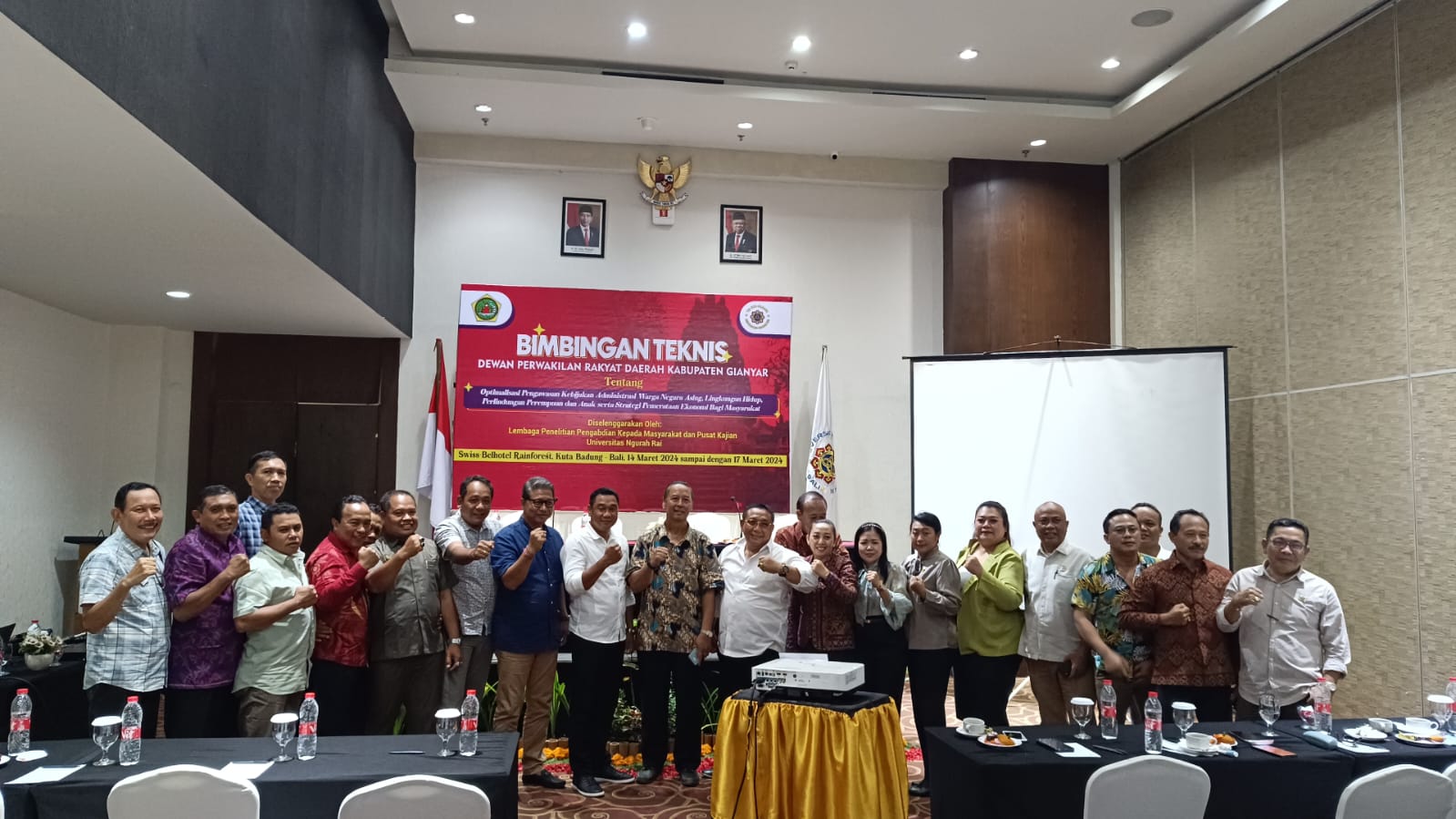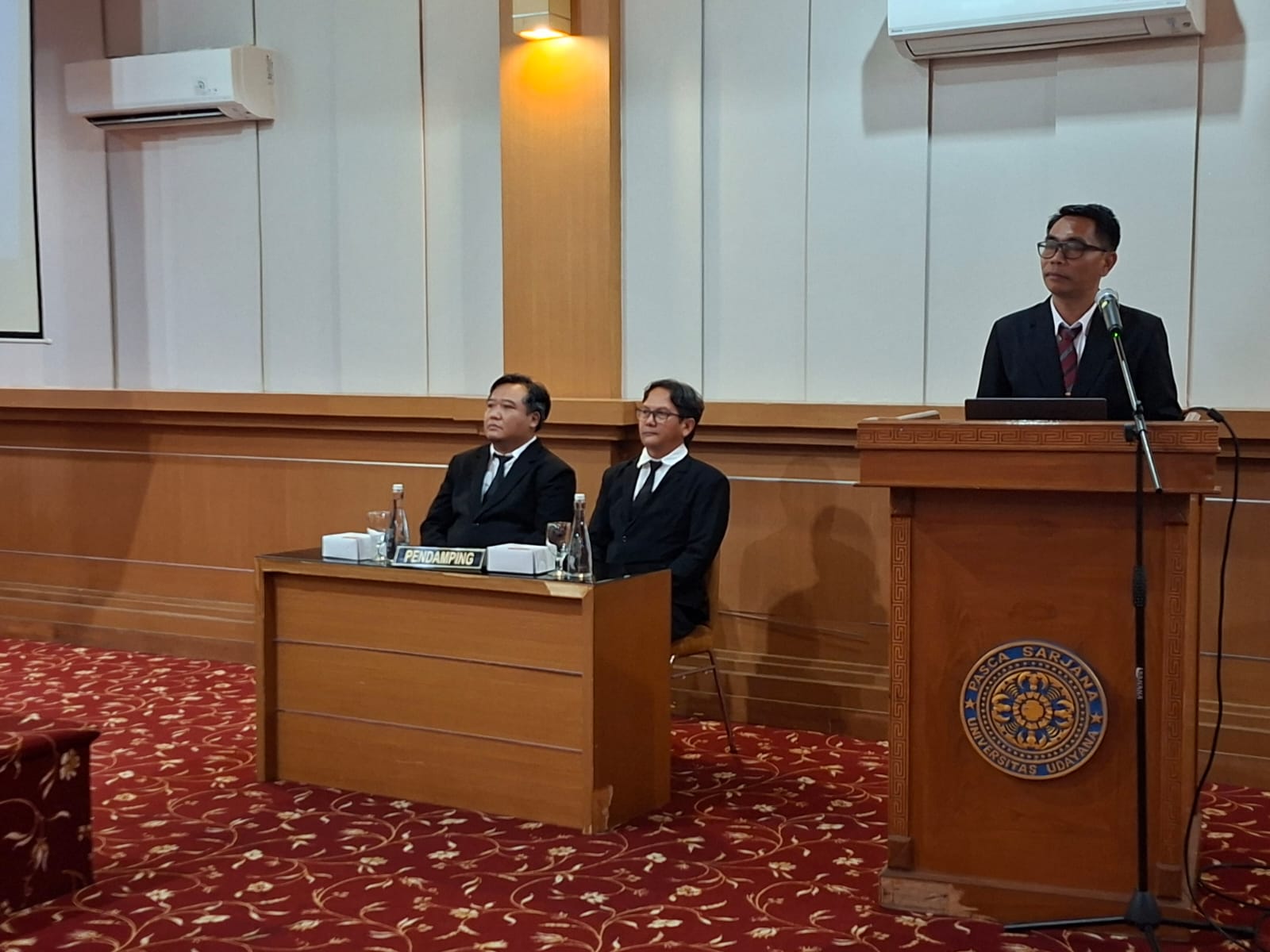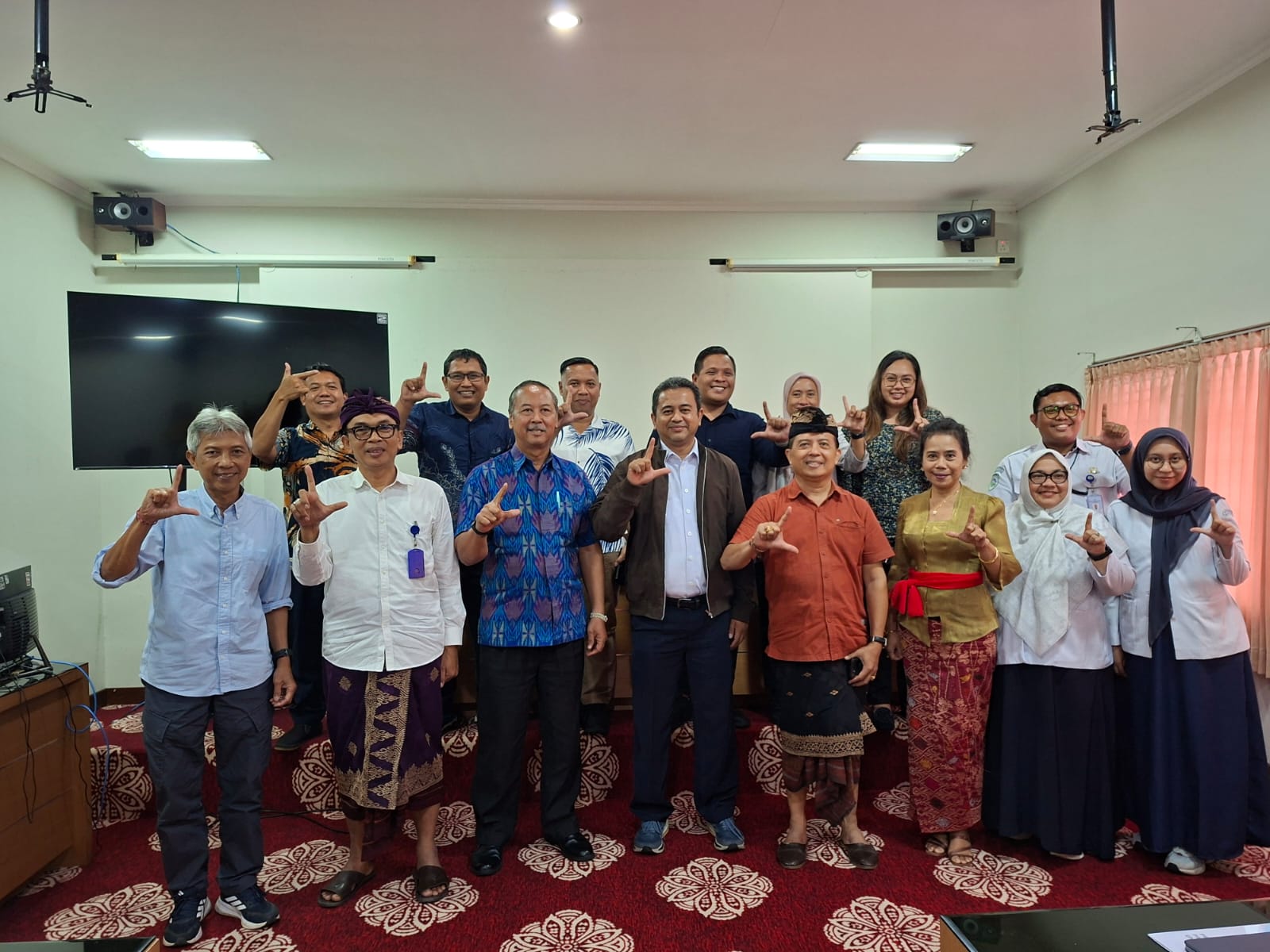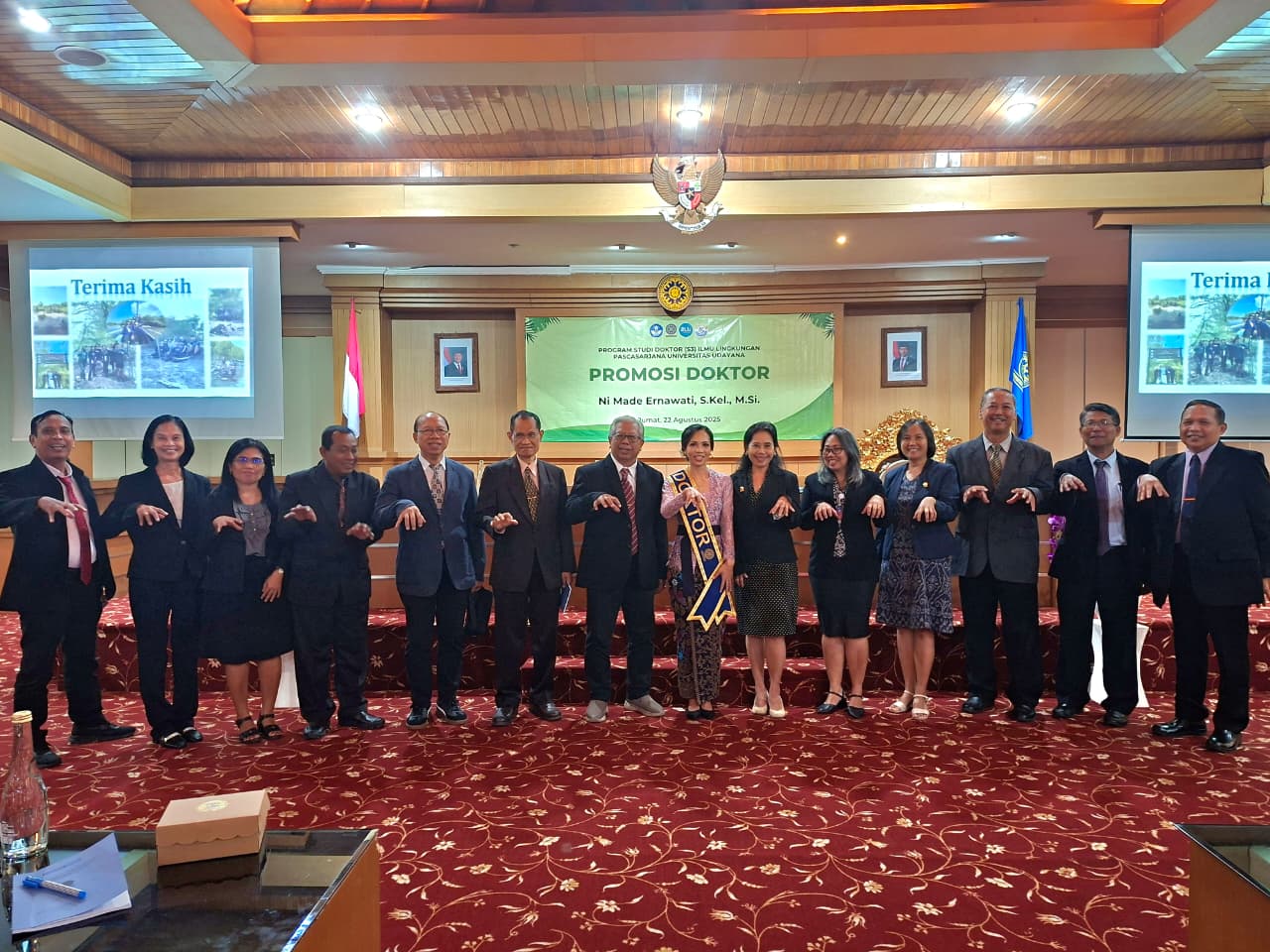Coordinator of PDIL Postgraduate Udayana University Provides Technical Guidance to Leaders and Members of the Regional House of Representatives Gianyar Regency University General
The Coordinator of the Postgraduate Environmental Science Doctoral Study Program (PDIL) of Udayana University, Prof. Ir. I Wayan Arthana, MS, PhD, was again a resource person in the Technical Guidance and Task Deepening activities, this time for the Leaders and Members of the Gianyar Regency DPRD, with the theme "Optimizing the Supervision of Foreign Citizen Administration Policies, the Environment, Protection of Women and Children, and Economic Equality Strategies for the Community," which was held on March 16, 2024, at Kori Maharani Villas Gianyar. This technical guidance and task deepening was organized by the Institute for Community Service Research and Study Center, Ngurah Rai University, and was attended by leaders and members of the Gianyar Regency DPRD.
As mentioned by Prof. Arthana in his presentation, how to balance the development of western Gianyar (Ubud) and the east (left behind) includes the environment, especially waste management. The waste problem has recently become increasingly complicated, especially after the final landfill in Temesi Village exceeded its capacity. Waste management by sorting at the source between organic, inorganic, and metal waste has been hampered by many obstacles. These obstacles include the fact that the community is not ready and transportation vehicles according to the type of waste are not yet available, Arthana added. Meanwhile, the Singapore waste management model that uses high-temperature combustion and sophisticated smoke management from combustion is still very far from being implemented due to its high cost. The sanitary land fill method will continue to have problems with adequate locations. All communities reject nearby waste processing sites, he added.
Instruments for monitoring sustainable development are already available through the AMDAL and KLHS review mechanisms. Even more intriguing is not to violate boundaries, such as coastal and river boundaries. Another thing is not to intersect with sacred areas, forest areas, or cultural heritage. Related to culture, all forms of local wisdom, cultural rituals, and existing cultural infrastructure must also continue to be well maintained so that they remain sustainable, concluded Arthana in his material he delivered (DK).




UDAYANA UNIVERSITY